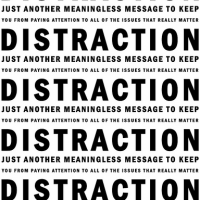On the heels of my post last week, Kevin Berger authored a rambling piece in the LA Times that is notable not just for its topical ignorance and dubious conclusions, but also its magnificent combination of half-truths, current industry jargon, Chicken Little nonsense, and a demonstration of what is truly possible when social media is used intelligently and effectively by a major arts institution.
First, a refutation. Contrary to what the article states, the arts industry is not “in love” with 30-somethings that stare at their phones for an entire concert. That’s because the following questions immediately arise:
Is there anything more idiotic or insulting to your patrons than encouraging everyone to pay attention to their phones during a classical music concert? Doesn’t that perpetuate the fashionable 20-second attention span demonstrated by so many people featured in this article? Do concertgoers really need to be “educated” while the actual event is taking place? Is talking down to your audience a good marketing strategy?
 Evidently none of that occurred to the Pacific Symphony, but at least they had the sense to promote the concert as, well, not really a concert. And I guess the 5 Browns also thought it was a great idea (but that’s another conversation). My point is this: even in these difficult economic times, lots of people (young and old) still go to live concerts to disconnect and (ideally) be transported in an indescribable an highly individual way. In the purest definition, it’s the essence of art and a very personal experience. You can’t do that if the jerk next to you is staring at their phone. Tweeting program notes or anything else during the concert is distracting, patronizing, and annoying to everyone else who actually wants to pay attention for more than 2 minutes at a time, not to mention the deleterious effect on the artists themselves (as Hilary Hahn patiently explained, in marked contrast to the 5 Browns).
Evidently none of that occurred to the Pacific Symphony, but at least they had the sense to promote the concert as, well, not really a concert. And I guess the 5 Browns also thought it was a great idea (but that’s another conversation). My point is this: even in these difficult economic times, lots of people (young and old) still go to live concerts to disconnect and (ideally) be transported in an indescribable an highly individual way. In the purest definition, it’s the essence of art and a very personal experience. You can’t do that if the jerk next to you is staring at their phone. Tweeting program notes or anything else during the concert is distracting, patronizing, and annoying to everyone else who actually wants to pay attention for more than 2 minutes at a time, not to mention the deleterious effect on the artists themselves (as Hilary Hahn patiently explained, in marked contrast to the 5 Browns).
Tweety concerts are exactly the wrong use of current technology. What about this: maybe tweet, Facebook, and YouTube everything you want to all your patrons before, during intermission, and after the concert itself, but not during?
Some other highlights, if you missed them:
– The 40-something LA Phil administrator who marvels at the “older generation’s ability to just listen to music”, while proudly highlighting her own attention span commensurate with most 6-year-olds.
– The NY Phil’s “Vix in the City” campaign, a rare misstep wisely abandoned despite its creative but misguided genesis.
– the brilliance of the LA Phil’s director of digital marketing, a position every arts institution should create. Ms. Seidenwurm (age 47) seems to truly get it, unlike virtually everyone else featured in this article.
Incidentally, I notice that the LA Phil doesn’t (yet) have concerts that require audience members to gape at their phones instead of listening. Nor do any arts institutions that stick to their core values and purpose (as Carl St. Clair intimated, perhaps unintentionally).
It seems so long ago that the Metropolitan Opera introduced Met Titles, with accompanying outrage from purists. But the Met asked all the right questions before taking that plunge, thus adapting groundbreaking technology without artistic compromise. The arts industry has no choice but to embrace technology and social media, both artistically and from a marketing perspective. But if that embrace destroys your artistic integrity, what’s the point?
For those of you looking for a more informed journalistic perspective, John von Rhein has an excellent piece here.

Frank –
Brilliantly stated!
One of the biggest problems with the orchestra business is the lack of understanding of the nature of our product on the part of so many administrators.
I hesitate to make a shameless plug, but here goes: my book–Looking for the “Harp” Quartet: An Investigation into Musical Beauty (University of Rochester Press, 2011)–addresses in considerable detail the nature of the experience you so aptly describe, and how the performer, composer, and listener contribute. [www.markandthakar.com/harpquartet for info]
Markand,
Thanks for your comment (and shameless plug!). Although I haven’t read your book, at least now people know where to find it.
Hope you are well- FA